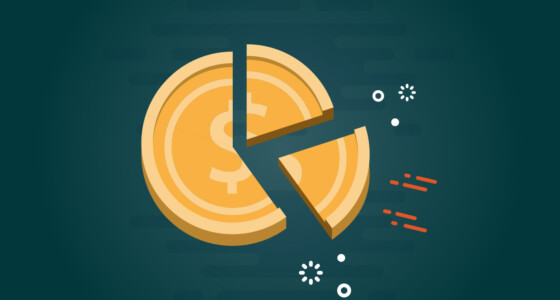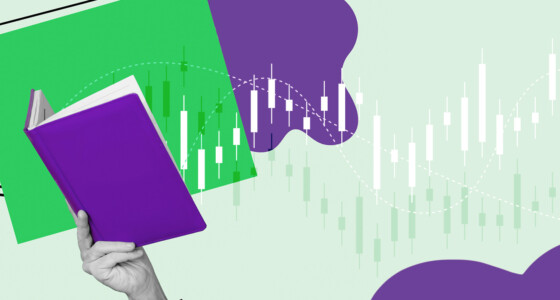

Whether or not you’ll enjoy the trading process comes down to your frame of mind when trading and how you perceive any short-term setbacks. Enjoying the trading process isn’t just about how you perceive losses; even when you’re making consistent profits, the burnout effect could easily make you lose interest in trading. And you won’t last much longer unless you learn how to enjoy the trading process. Here are the top five tips on how to really enjoy the trading process.
Learn to love to lose
The first step to enjoying the trading process is to ensure that loss-making trades do not frustrate you. Remember, no trading strategy has a 100% success rate. Psychologically, minor cumulative stressors can take a heavy toll on you. So how do you deal with them? Learn to love to lose. How?

View losses as a learning opportunity – at least you’ll know what not to do next time. Stay focussed on the bigger picture, accept that minor setbacks are a part of the business, and a losing trade shouldn’t surprise you, much less frustrate you. Once you accept this fact, the negative emotions from a losing trade won’t impact your trading.
Once you’ve internalized this, your perception of losses will change; you’ll always view losses not as setbacks but as an opportunity to learn.
Know when to stop trading
According to cognitive psychologists, having negative emotions such as sadness, stress, worry, fear, anxiety, etc., make us feel like “something is missing.” Such feelings may drive you to seek instant gratification by trading just to fill the emotional void. That’s a bad idea! And it can be a very slippery slope to overtrading and revenge trading, and that’s how you constantly blow up your account and lose interest in trading.
In such cases, avoid trading. You will enjoy the trading process when you are level-headed when your objective is to maximize your profits, not fill your emotional void. When your judgement is clouded with negative emotions and feelings, any logic based on your trading plan and risk management goes out the window.
Know your hours of peak productivity
One of the best ways to enjoy the trading process is self-awareness, specifically knowing when your body and mind are at peak productivity. Whether you’re trading stocks, Forex, or crypto, the global market is on a 24-hour cycle; but it’s unrealistic to expect to trade round the clock. So, to be in the right state of mind for trading, identify the time of day when you are at your best. Then, schedule your trading sessions around this time. You’ll stay alert and motivated when you are “fresh” mentally and physically.

Why is this important? The trading process is thorough – from identifying the tradable asset, and conducting fundamental and technical analyses, to finding ideal execution price points. Even though, in some cases, it involves implementing routine strategies, you will still need to be laser-focused. And that requires you to be at your peak performance.

Avoid distractions
Any successful trader will tell you, and rightly so, that trading requires surgical precision. In most cases, you will be required to execute a trade in split seconds or miss the window. As you can imagine, it will only frustrate you since you’re bound to start asking, “…what could I have done differently?” And when this starts, you will lose interest in trading. So, what are you to do? Avoid distractions.
Treat trading like work. It’s your employment, meaning you should give it the seriousness and attention it deserves. Tune out physical distraction – if necessary, have a designated trading area where you only have trading-related materials, and block out loud noises. And not just that, you need to train yourself to avoid market hypes that deviate from your trading strategy.
We’re not saying live in an echo chamber, but you should educate yourself enough to distinguish between baseless hype and relevant data. Generally, a tiny distraction could lead you down a rabbit hole, creating doubt, making you second-guess yourself constantly, and ruining your trading experience.
Take a break from trading
All work and no play makes Jack a dull boy (or Jane a dull girl). Even after identifying your peak productivity time, you still need to understand that the trading process is psychologically taxing. Doing this day in, day out, more than a hundred hours a week, even if you’re a profitable trader, you will quickly burn out.

Our minds and bodies accumulate physical fatigue from the neurobiological impact of trading. This could be from exposure to the slight fluctuations of our portfolios, external stress, poor habits, or even a lack of physical activity. And contrary to popular belief, these minor, seemingly harmless stressors do not strengthen you; they can amputate part of yourself.
So, to enjoy the trading process, take a break from trading to rest, relax and recharge. When you’re too tired or not in the right state of mind, you are bound to miss some things, get easily frustrated, or even ignore your trading plan.
In fact, you should make it a habit that after exiting a trade, whether a loss-making or profitable one, you take some time off, an hour or so, just to level your mind. This ensures you don’t fall into the trap of overtrading when you are on a winning streak or revenge trading when you make a losing trade.
The bottom line
It’s safe to say that if you’ve ventured into trading, your primary goal is to earn money. But to be profitable in the longer term, you mustn’t lose interest; you must adjust your trading mindset and decision-making to ensure you remain motivated throughout the trading process. And that’s why we have reviewed the top five tips on how to really enjoy the trading process.






